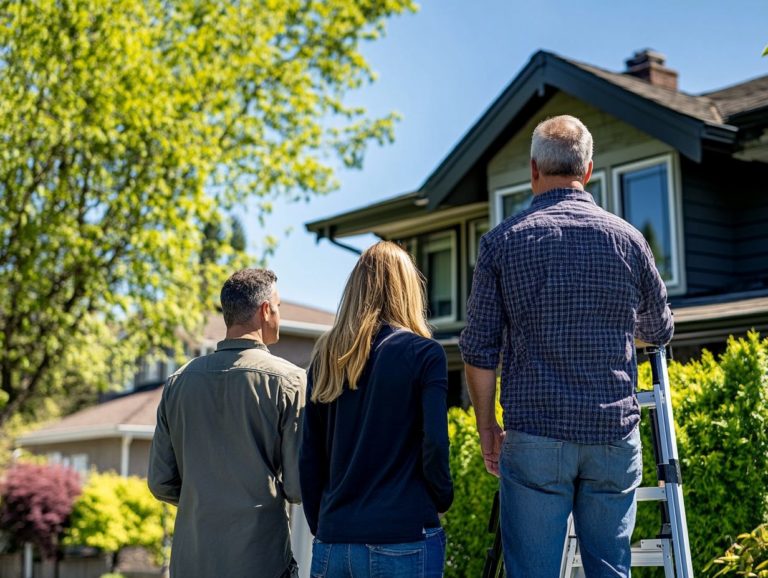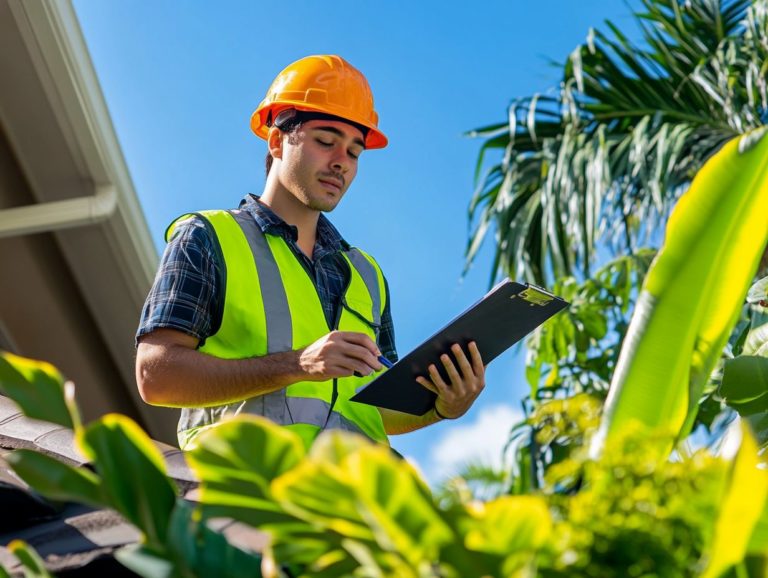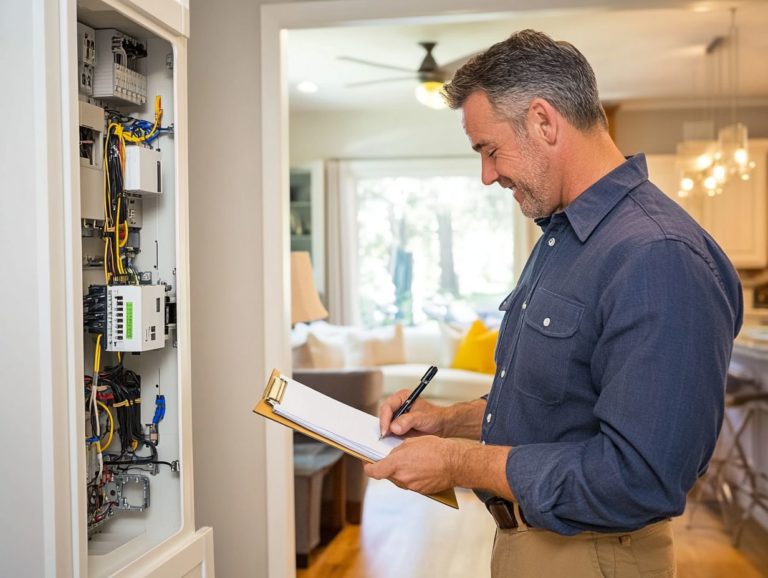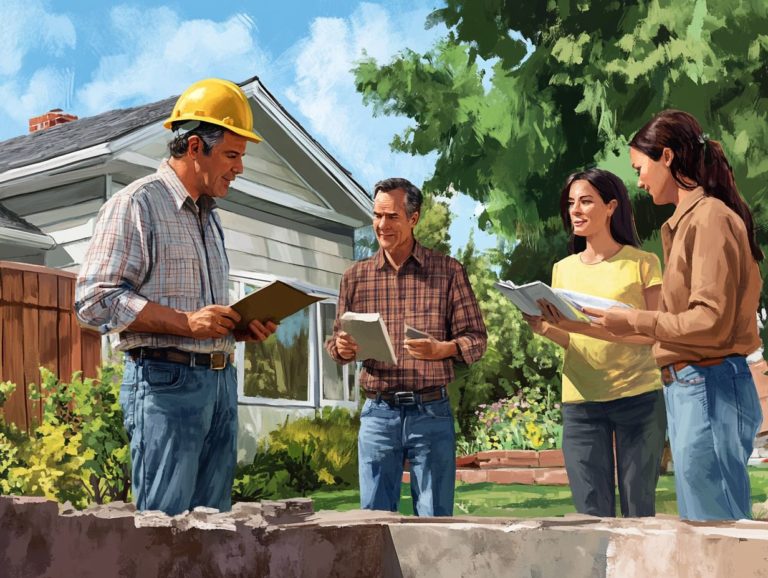Understanding Home Inspection Protocols
Buying a home is one of the most significant investments you ll ever make, and a thorough home inspection is an essential step in that process.
This guide provides you with everything you need to know about home inspections from their purpose and importance to the step-by-step process involved. You ll explore the various types of inspections, discover what inspectors typically look for, and learn how to interpret their findings.
You’ll also find information on costs and tips for selecting the right home inspector. Whether you re a first-time buyer or a seasoned homeowner, gaining a solid understanding of home inspections will empower you to make informed decisions and effectively protect your investment.
Contents
- Key Takeaways:
- What is a Home Inspection?
- The Home Inspection Process
- Types of Home Inspections
- What Home Inspectors Look For
- Interpreting the Home Inspection Report
- Costs and Considerations
- Choosing a Home Inspector
- Seller Responsibilities in the Home Inspection Process
- Frequently Asked Questions
- What is a home inspection protocol?
- Why is it important to understand home inspection protocols?
- Who sets the standards for home inspection protocols?
- What are some common items looked at during a home inspection?
- Can I attend the home inspection?
- What happens if issues are found during the home inspection?
Key Takeaways:
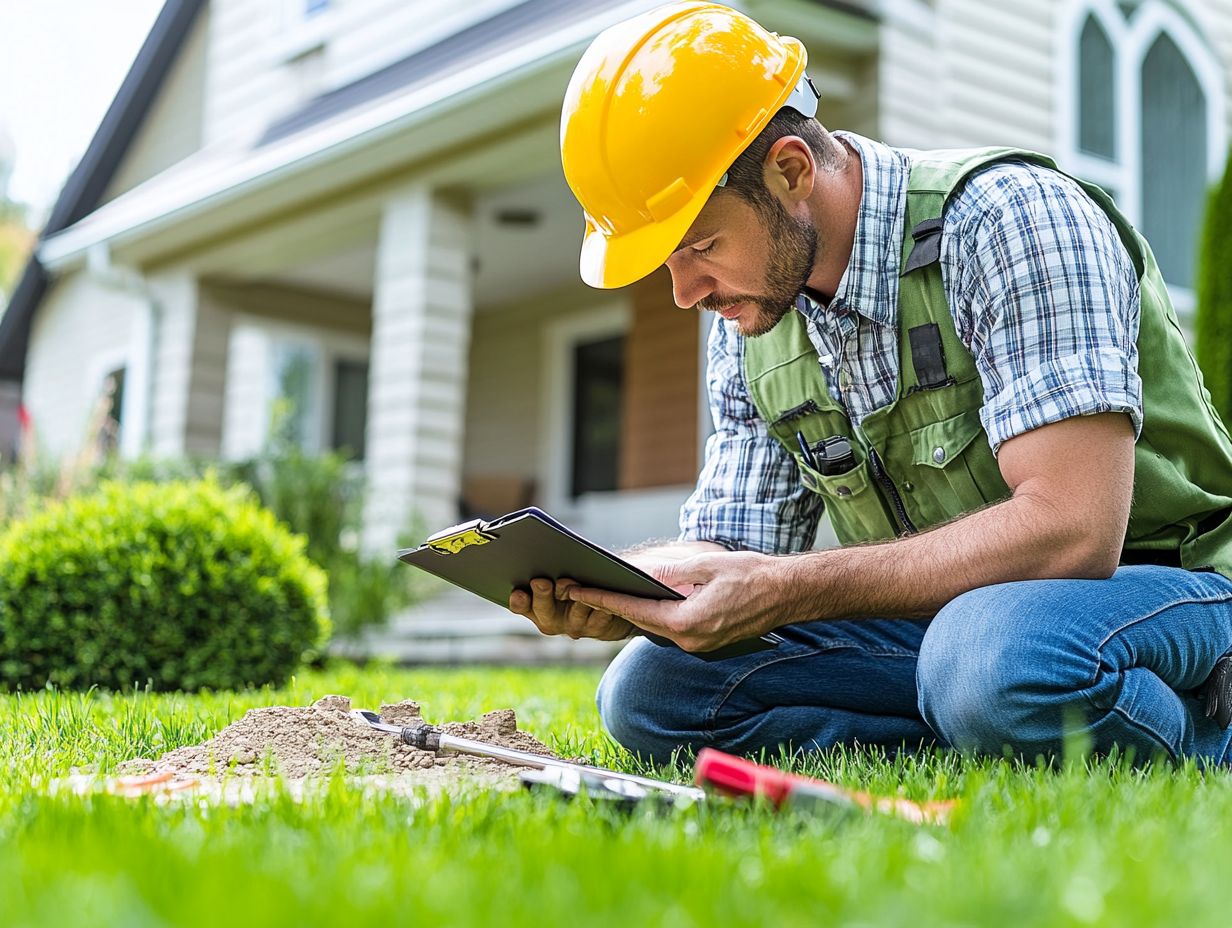
Understanding the purpose and importance of a home inspection is crucial for homeowners to ensure their property is safe and in good condition. The home inspection process involves a thorough examination of various components of a home. It is important to choose a qualified and experienced inspector for accurate results. Additionally, understanding home inspection reports can help homeowners identify any potential issues with their property and make informed decisions about repairs and maintenance.
What is a Home Inspection?
A home inspection is an in-depth assessment of a property’s physical structure, designed to evaluate its condition and uncover any significant issues. For a comprehensive look at this essential step, refer to the understanding the home inspection process: a guide, which can help illuminate factors that could impact its value and safety.
Usually carried out by a qualified expert adhering to the standards set by the American Society of Home Inspectors (ASHI), this process is essential for you as a homebuyer. It equips you with crucial insights into the risks associated with a potential real estate transaction, so it’s important to understand what to know about home inspection policies, ensuring you make informed decisions.
The Home Inspection Process
The home inspection process involves a careful checking of a property, assessing its various components, and is crucial for understanding the basics of home inspections.
This ensures that you, as a home buyer, receive a comprehensive and accurate understanding of the home s condition before you finalize your purchase.
Step-by-Step Guide
A comprehensive step-by-step guide to home inspections encompasses preparation, conducting a visual inspection, and compiling an inspection checklist to ensure that all critical areas are evaluated for safety concerns. For more details, check out understanding the home inspection process.
Before you dive into the process, it s essential to prepare adequately. Gather all relevant documents and pinpoint any specific areas of concern that may require extra attention.
During the visual inspection, your trained eye will comb through the property, seeking out signs of wear, damage, or code violations. This is where a detailed inspection checklist proves invaluable; it covers vital elements like:
- Roofing
- Plumbing
- Electrical systems
- Pest issues
A professional evaluation helps you understand your findings better, whether you are a prospective buyer or a current owner. This highlights the significance of investing in a thorough home inspection, protecting your future.
Types of Home Inspections
Home inspections can be divided into two primary categories: general home inspections and specialized inspections.
Each type serves a unique purpose, addressing different aspects of property evaluation and potential concerns you may encounter.
General Home Inspection vs. Specialized Inspections
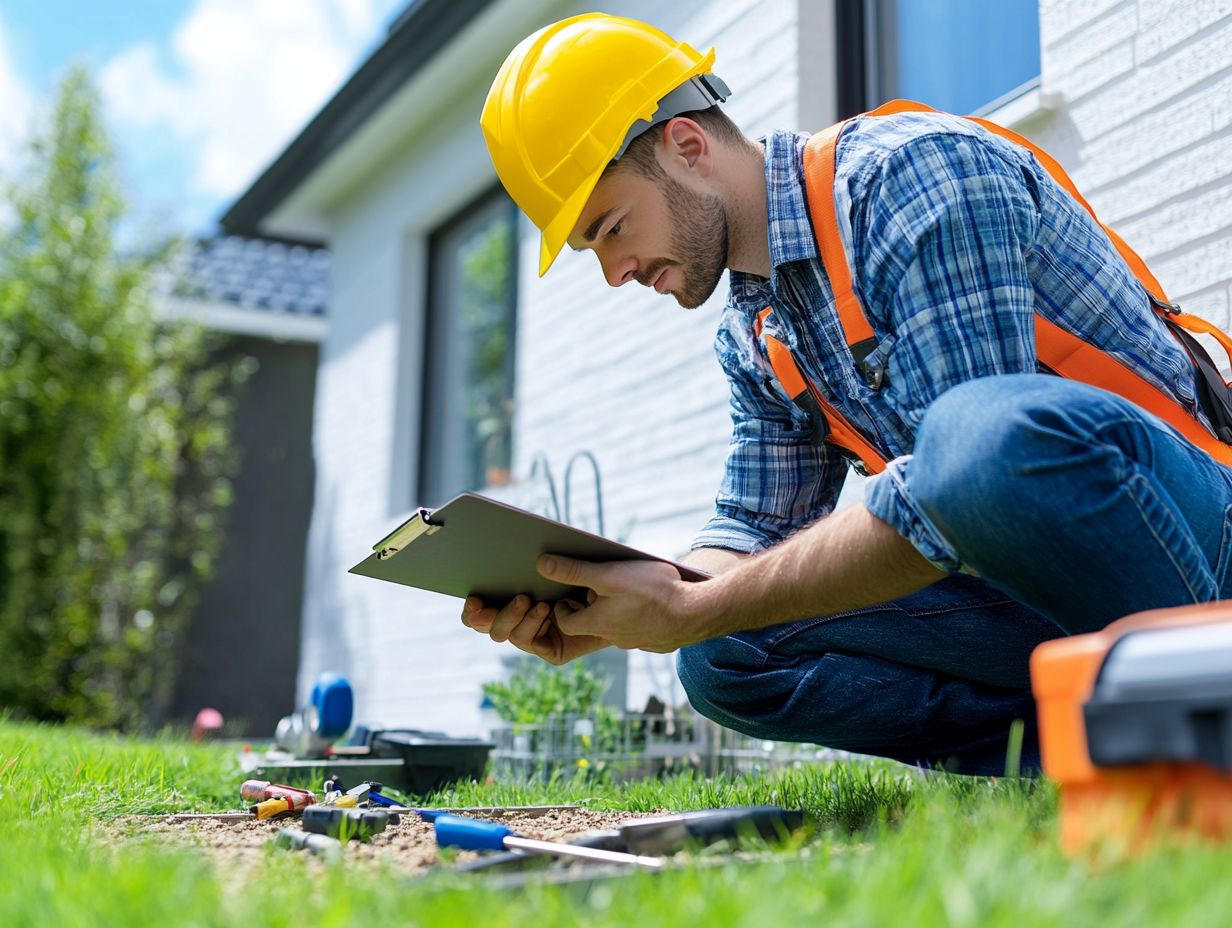
A general home inspection gives you a broad overview of the property’s structural integrity, while specialized inspections focus on specific areas like the foundation, roofing, or Heating, Ventilation, and Air Conditioning (HVAC) systems to identify any potential concerns. Understanding the distinctions between these two types of evaluations is crucial for both buyers and sellers in the real estate market.
A general inspection covers vital components, providing an overall assessment of the home s condition and helping you gauge whether the purchase is worthwhile. In contrast, specialized inspections dive deeper into particular systems or materials, uncovering issues that could significantly influence repair costs.
By obtaining both types of inspections, you arm yourself with essential knowledge for negotiations and gain a clearer picture of any impending financial commitments. This ultimately fosters informed decisions and can save you from costly surprises down the line.
What Home Inspectors Look For
During a home inspection, you can expect inspectors to systematically evaluate various common areas and components. Their keen focus lies in identifying any safety concerns, structural issues, and the property’s overall condition based on their careful inspection, which is part of understanding the process of home inspections.
Common Areas and Components Inspected
During a home inspection, you ll want to pay close attention to common areas and components like HVAC systems, plumbing, and electrical systems. These elements are crucial for ensuring both the safety and functionality of the property.
Each of these components plays a significant role in maintaining a comfortable living environment while preventing potential hazards. For example, HVAC systems are not just about keeping your home at the right temperature; they also impact your indoor air quality. A unit that s not well-maintained can lead to health complications you definitely want to avoid.
It’s also essential to evaluate the plumbing infrastructure to uncover any leaks or corrosion that could result in expensive repairs and perhaps more importantly, foster mold growth, which poses serious health risks. A thorough examination of the electrical systems is equally vital; outdated or faulty wiring can ignite fires, making safety a top priority in any assessment.
By meticulously evaluating these systems, inspectors offer invaluable insights, enabling you to make informed decisions about your potential property investment.
Interpreting the Home Inspection Report
Interpreting the home inspection report is crucial for you as a home buyer. This report not only highlights the findings from the inspection but also offers recommendations for addressing any identified issues.
By understanding these insights, you can make informed decisions regarding your remediation options, ensuring you re fully equipped to navigate potential challenges ahead.
Understanding Findings and Recommendations
Understanding the inspection findings and recommendations enables you to negotiate smarter, whether it’s with the seller or regarding repairs. This minimizes the risk of buyer s remorse after you ve purchased a property.
These findings become your vital leverage during discussions with sellers, allowing you to address potential issues before you commit. By thoroughly assessing the detailed report, you can identify necessary repairs and their estimated costs, significantly impacting the final purchase price.
With this strategy, you can confidently ask for repairs or price adjustments, potentially leading to substantial savings. Ultimately, grasping the inspection details paves the way for a smoother transaction process. It ensures that your decisions align not only with your budget but also with your aspirations as a future homeowner.
Costs and Considerations
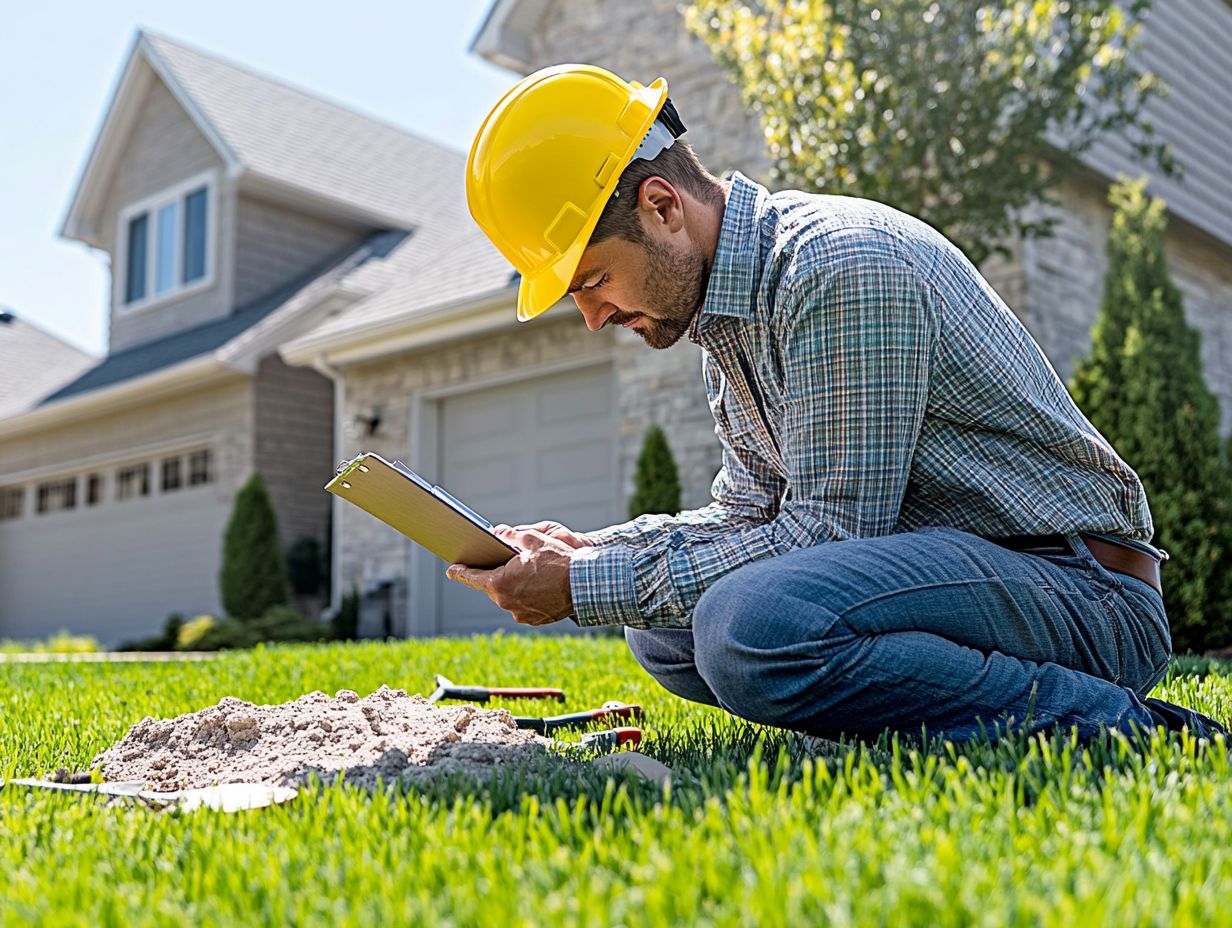
Home inspection costs can fluctuate considerably, shaped by various factors such as the size of the property, its current condition, and the extent of the inspection process. Weigh these factors carefully to make the best choice for your future!
Factors Affecting Home Inspection Costs
Several factors influence the costs of a home inspection, including the property’s condition, the complexity of the inspection process, and the current state of the real estate market, which can sway demand and pricing.
When contemplating a home inspection, you should consider the property’s age; older homes often require more extensive evaluations due to outdated systems and the potential for hidden issues lurking beneath the surface.
The size of the property is another important factor, as larger homes naturally demand more time and resources for a thorough inspection.
Market conditions also play a critical role; shifts in buyer competition or economic trends can either drive up or decrease inspection prices, creating a constantly evolving landscape for both inspectors and prospective homeowners.
By understanding these elements, you can better equip yourself for the budgeting process associated with your property investments.
Choosing a Home Inspector
Selecting a qualified home inspector is paramount for a successful home buying journey. Their expertise ensures that every facet of the inspection process adheres to industry standards, including understanding the home inspector’s role as established by the American Society of Home Inspectors (ASHI).
This attention to detail can be the difference between a smooth transaction and unforeseen complications down the line.
Qualifications and Credentials to Look For
When you’re selecting a home inspector, it s essential to seek out qualifications and credentials that demonstrate their training and experience. This is crucial for a professional evaluation that meets ASHI standards.
These experts usually have certifications from reputable organizations. This shows their expertise in inspection methods.
Their experience goes beyond performing inspections; it includes hands-on knowledge of building codes, structural integrity, and issues related to safety and health in the environment. All of these are critical for spotting potential problems.
A qualified home inspector undergoes rigorous training and participates in ongoing education to keep up with industry standards and techniques.
By ensuring that your chosen inspector has these qualifications, you can look forward to a thorough and accurate assessment of the property.
Seller Responsibilities in the Home Inspection Process
In the home inspection process, your responsibilities as a seller are paramount. You are required to disclose any known issues and prepare the property for inspection.
This diligence can greatly influence the identification of potential problems during the inspection, ultimately shaping the buyer’s perception and decision-making process.
Frequently Asked Questions
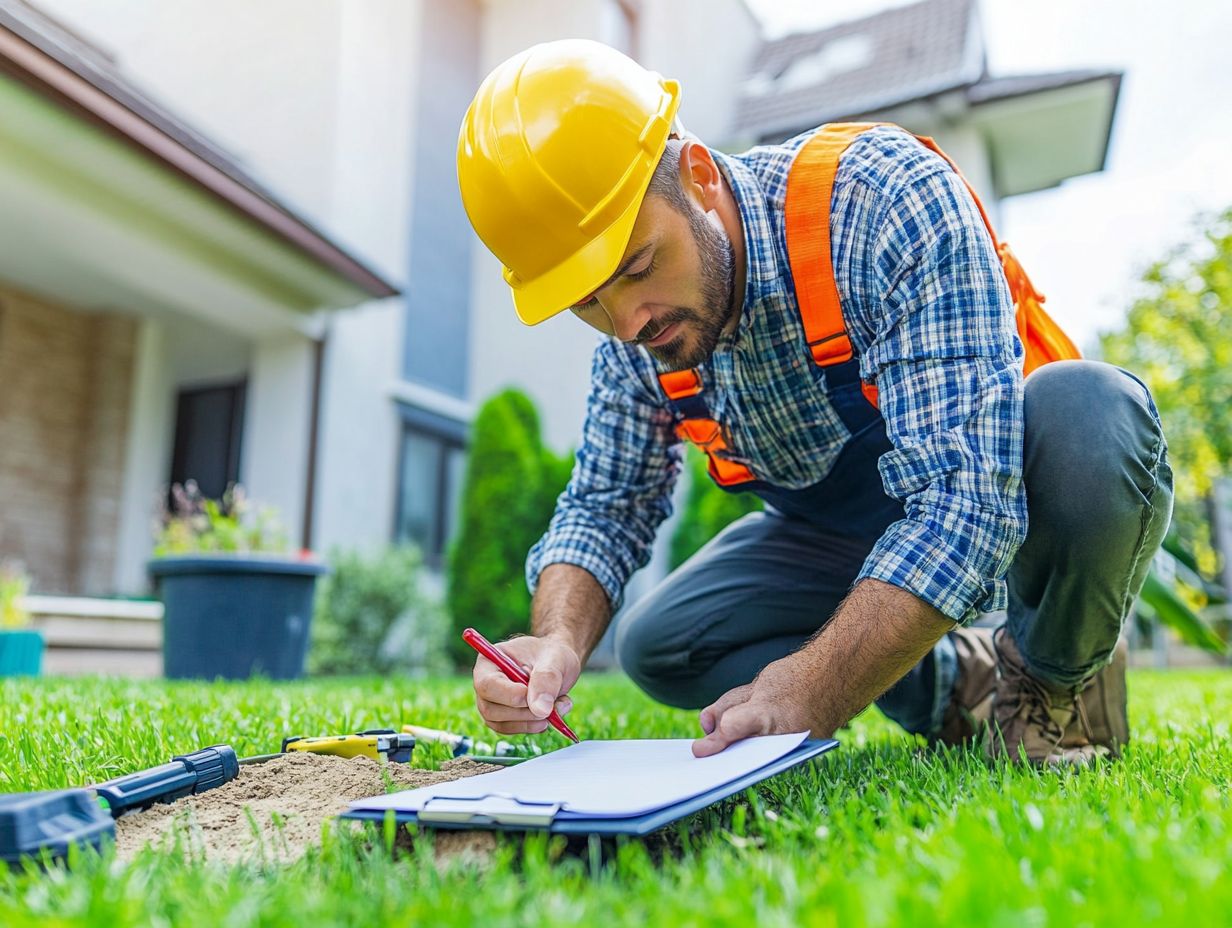
What is a home inspection protocol?
A home inspection protocol is a set of guidelines and procedures that a professional home inspector follows when examining a property. It outlines the inspection’s scope and the understanding home inspection protocols, including the standards and methods used to assess the home’s condition.
Why is it important to understand home inspection protocols?
Understanding home inspection protocols is important because it allows you to know what to expect during a home inspection. Familiarizing yourself with understanding home inspection standards can help you make informed decisions about the property and negotiate necessary repairs or adjustments with the seller.
Who sets the standards for home inspection protocols?
The standards for home inspection protocols are set by various professional organizations, such as the American Society of Home Inspectors (ASHI) and the International Association of Certified Home Inspectors (InterNACHI). For a deeper insight, you can explore understanding home inspection standards and practices. These organizations promote consistency and professionalism within the home inspection industry.
What are some common items looked at during a home inspection?
A home inspection typically covers the structural components of a property, including:
- Foundation
- Roof
- Walls
- Plumbing
- Electrical systems
- Heating and cooling systems
It may also include a visual inspection of the interior and exterior of the home, including appliances and fixtures.
Can I attend the home inspection?
Yes! Make sure to attend the home inspection to protect your investment. Being present allows you to ask questions and gain a better understanding of the property’s condition. However, it is important to respect the inspector’s space and not hinder the inspection process.
What happens if issues are found during the home inspection?
If issues are found during the home inspection, the buyer and seller can negotiate how to address the problems. This may involve:
- The seller making repairs
- Providing a credit towards closing costs
- Adjusting the sale price of the property
In some cases, the buyer may choose to walk away from the deal.

